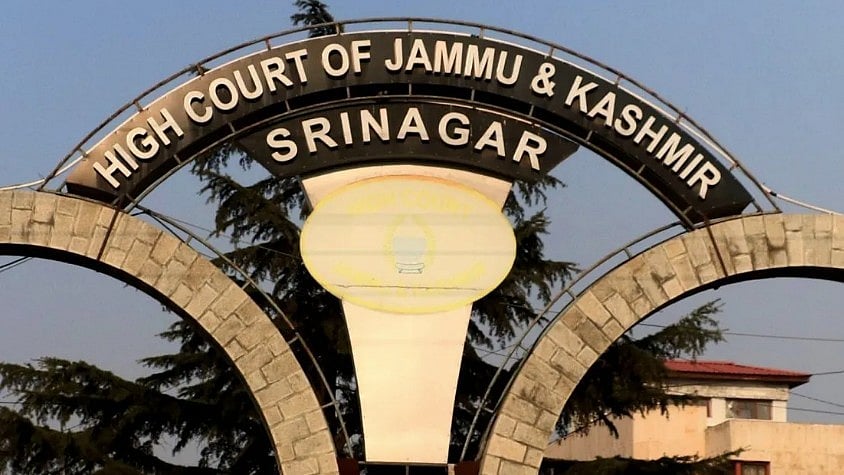
The High Court of Jammu and Kashmir.
Credit: PTI Photo
Srinagar: The Jammu and Kashmir High Court has issued notices to the Centre in a writ petition filed by former CRPF constable Munir Ahmed, who is contesting his dismissal from service for allegedly concealing his marriage to a Pakistani national and allowing her to remain in India after her visa expired.
Ahmed, a resident of Gharota in Jammu, had joined the CRPF in April 2017. On May 24, 2023, he married his cousin, Meenal Khan - a Pakistani citizen whose family had migrated from Jammu’s Bhalwal tehsil during the 1947 Partition - through a video call ceremony.
Tensions between India and Pakistan escalated following the deadly April 24 terror attack in Pahalgam, which claimed 26 lives. In the aftermath, the Indian government directed all Pakistani nationals on short-term visas to leave the country by April 29. Meenal Khan was among those affected by the order.
Just days later, on May 3, 2025, Ahmed was dismissed from service. According to the CRPF, he failed to inform his superiors about the marriage and had allowed a foreign national to stay in India illegally, actions they described as “arbitrary, capricious, whimsical and detrimental to national security.”
However, in his petition, Ahmed denied the allegations of concealment and argued that he had followed due process. “Since 2022, I had repeatedly informed the authorities about my intention to marry across the border by submitting all necessary representations and communications,” the petition stated. He called his dismissal unjust and requested the court to set aside the termination order.
The High Court, after hearing preliminary arguments, issued notices to the Ministry of Home Affairs and the CRPF, directing them to file their responses before the next hearing, which is scheduled for June 30.
The case touches on sensitive issues at the intersection of personal liberty, national security, and bureaucratic accountability. Legal experts say the court’s decision could have significant implications for how cross-border marriages involving security personnel are handled in the future.